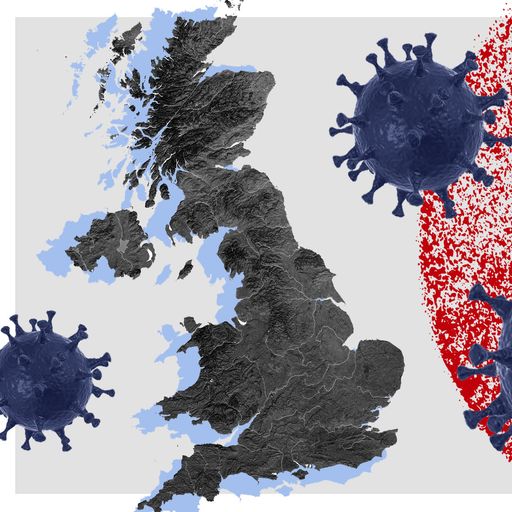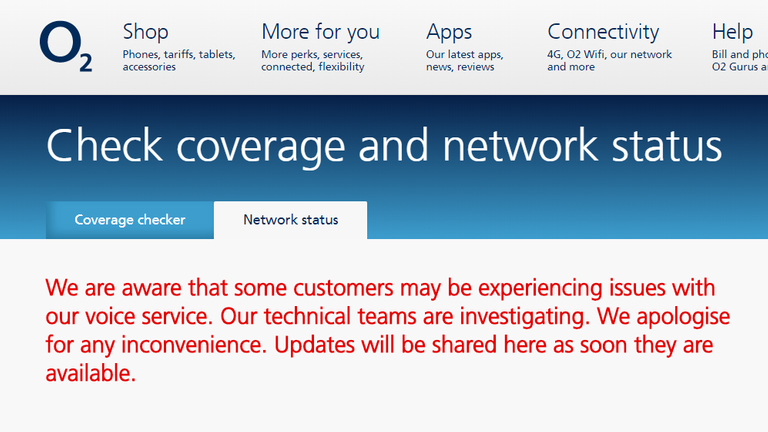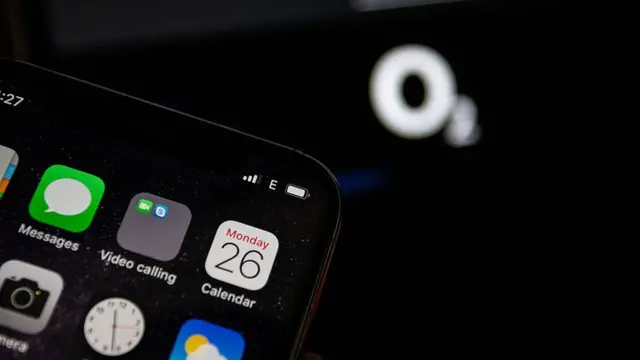The O2 mobile network has suffered an outage as large numbers of people in Britain work from home.
Britons are working from home to prevent the spread of
COVID-19
, the virus caused by **coronavirus
,** with the outbreak now infecting more than 1,500 people in the country, 55 of whom have died.
The issues apparently resulted from a short-lived network congestion problem which did affect calls made over 3G for the three major networks - O2, EE and Vodafone.

Coronavirus UK tracker: How many cases are in your area – updated daily

Image:O2 confirmed the network problems on its website
Telecommunications industry sources at rival companies told Sky News that their networks were working fine but would not be reachable from O2 numbers due to issues with that network.
In a status update on its website, the company confirmed: "We are aware that some customers may be experiencing issues with our voice service. Our technical teams are investigating. We apologise for any inconvenience."
A spokesperson for O2 said the company did not immediately have another statement on the outage.
It comes as the government ramps up measures against the coronavirus epidemic
following new predictions
that the UK could otherwise have seen 250,000 deaths.
A new document published by the COVID-19 team at London's Imperial College - which is advising the government on its coronavirus response - warns the current public health threat is the "most serious" from a respiratory virus since the Spanish Flu in 1918.
They advised the UK adopts a strategy of "epidemic suppression" - for a period of potentially 18 months or more - rather than "mitigation".
On Monday, Prime Minister Boris Johnson announced a significant escalation of UK measures in response to coronavirus, including advising everyone in the country to
avoid pubs
, clubs, restaurants and theatres and to only make essential journeys

Coronavirus hits retailer Laura Ashley
What is the latest coronavirus advice?
-
If you live alone and have a high temperature or a new and continuous cough, you should self-isolate for seven days
-
If you live in a household with others and have a high temperature or a new and continuous cough, both yourself and all others in your household should stay isolated together for 14 days
-
Everyone, including if you are not displaying symptoms yourself and live in a household where no one is displaying symptoms, should stop all unnecessary contact with others and all unnecessary travel
-
You should work from home where possible and avoid venues such as pubs, clubs, theatres and restaurants
-
Pay particular attention to the advice if you are over 70, pregnant, have underlying health problems or live in London
-
Don't call the NHS 111 helpline if you have mild or moderate illness and instead seek advice online. But do call if your illness becomes more severe.
 简体中文
简体中文





